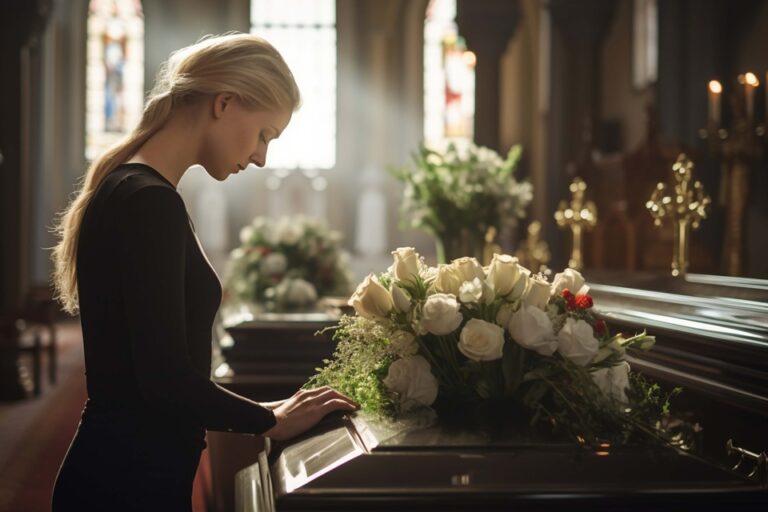Funeral services provide a way for families and friends to pay tribute and keep memories of their loved ones alive. The customs and traditions surrounding funerals vary based on cultural, religious, and personal preferences. Each type of service offers unique elements that cater to different needs and beliefs. Funeral homes in Winchester Virginia, offer a range of services, from traditional funerals and cremations to personalized memorials, ensuring each family receives the support and care they need during difficult times.
Table of Contents
Traditional Funeral Service
A traditional funeral service follows a structured format and often includes religious or spiritual elements. The ceremony is typically held in a church, funeral home, or designated venue. A clergy member, officiant, or family member usually leads the service, offering prayers, readings, and eulogies.
The body is often present in a casket, allowing attendees to pay their respects. Visiting or viewing may occur before the service, allowing family and friends to say their goodbyes. The service is followed by a procession to the burial site, where a committal ceremony occurs before the final interment.
Traditional funerals provide a structured way to grieve and celebrate a person’s life. They allow for rituals that bring comfort and closure to those mourning a loss.
Memorial Service
This service can occur days, weeks, or even months after a person’s passing. Memorial services allow families to plan a gathering conveniently, allowing loved ones to unite and honor the deceased.
These services can be held at a church, funeral home, community center, or outdoors. Family members and friends often share stories, offer tributes, and reflect on cherished memories. A memorial service may include music, readings, and video presentations to celebrate the individual’s life.
Memorial services offer flexibility and allow for a more personalized approach.
Graveside Service
It is often a brief and intimate gathering that focuses on the final farewell before the burial. A clergy member, officiant, or family member may conduct a short ceremony with prayers, readings, and words of comfort.
This service is sometimes held in addition to a traditional funeral or memorial service. Some families choose a graveside service as the primary way to honor their loved one, opting for a simple and meaningful farewell.
Graveside services allow attendees to witness the burial, offering a sense of closure and a chance to say a final goodbye. The intimate nature of these gatherings makes them a comforting option for those seeking a quiet and respectful farewell.
Direct Burial
In this arrangement, the body is buried shortly after death without a funeral service, visitation, or viewing. A basic casket is used, and the burial occurs at a cemetery chosen by the family. Some may have a small gathering at the gravesite, but no formal ceremony is required. Direct burial is often selected for its simplicity and affordability. It provides a dignified way to lay a loved one to rest without extensive planning or expense.
Direct Cremation
Direct cremation is similar to direct burial but involves cremating the body instead of burying it. The process occurs shortly after death without a funeral service, viewing, or visitation.
Once the cremation is complete, the ashes are returned to the family, who may hold a private ceremony, scatter the remains, or keep them in an urn.
Celebration Of Life
A celebration of life is about honoring and remembering someone ‘s life in a joyful and uplifting way. This type of service is typically less formal than a traditional funeral. It may occur in various areas, such as a park, banquet hall, or private home.
These gatherings often feature music, storytelling, and interactive elements that reflect the deceased’s personality and interests. Instead of focusing on grief, the emphasis is placed on the individual’s positive impact on others.
Home Funeral
A home funeral is a family-led service in a private residence. It allows loved ones to be actively involved in the preparation and ceremony.
Home funerals are often more intimate and provide a deeply personal experience. They align with natural and green burial practices, allowing for a simpler and environmentally friendly farewell.
Green Burial
It involves using biodegradable materials, avoiding embalming chemicals, and allowing the body to return naturally to the earth. The burial site is often in a designated green cemetery or a natural setting.
This type of burial appeals to those who prioritize sustainability and wish to depart in an eco-friendly manner. Green burials provide a natural and respectful way to honor a loved one while preserving the environment.
Military Funeral
A military funeral is reserved for those who have served in the armed forces. These services follow a structured protocol and often include military honors, such as playing “Taps,” a flag-folding ceremony, and a gun salute.
The service may be held at a national cemetery, funeral home, or designated location. Military funerals pay tribute to a person’s service and sacrifice, offering a dignified farewell with respect and gratitude.
Religious & Cultural Funerals
Religious and cultural traditions influence many funeral services. Different faiths and ethnic backgrounds have unique customs and rituals that shape how a funeral is conducted.
For example, Jewish funerals follow specific burial practices and often include a Shiva period for mourning. Hindu funerals involve cremation and rituals guided by religious teachings. Buddhist ceremonies focus on prayers and rebirth, while Christian funerals often include hymns and scripture readings.
Understanding these traditions helps families plan services that align with their beliefs and honor their heritage.
Conclusion
Funeral services provide an essential opportunity for loved ones to come together, remember, and celebrate a person’s life. Each type of service offers unique elements that cater to different preferences, from traditional and religious ceremonies to modern and eco-friendly options.
Choosing an exemplary funeral service depends on personal values, cultural traditions, and individual wishes. Whether opting for a structured ceremony or an intimate gathering, the goal remains to honor and remember a cherished life with love and respect.



